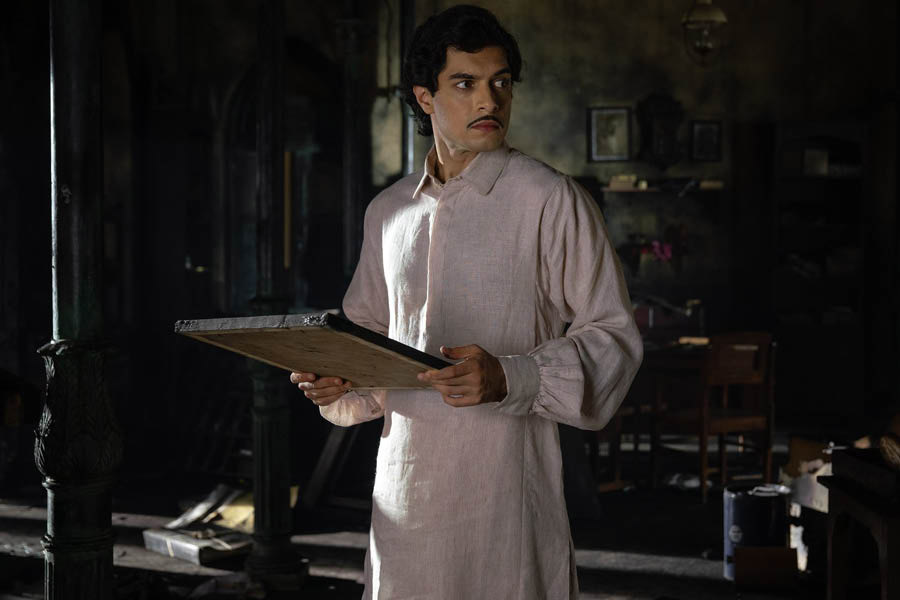Siddharth P. Malhotra’s Maharaj — a centuries-old real-life story about a journalist taking on a religious leader — is a bold choice for a film that resonates even today. Unfortunately, the execution of the film fails to do justice to this saga of religion vs law and blind faith vs rational thinking.
Starring Aamir Khan’s son Junaid Khan as Karsandas Mulji, a journalist who questions social norms and champions causes like widow remarriage, the film (based on the 1862 Maharaj Libel Case) establishes the key players through a quick voiceover that hardly gives us any time to get acquainted with our hero. All we know is that he likes asking questions.
Karsandas is engaged to Kishori but for Kishori “maharaj mangetar se upar hota hai aur dharm pyaar se”. So when the maharaj in question, Jadunath (Jaideep Ahlawat), known as JJ, smears gulal on her chest in front of everyone and selects her for “charan seva”, she considers herself lucky. Much to the horror of Karsan who goes looking for his fiancee and finds out that “charan seva” is just an euphemism for rape and molestation. We see a slight flare in Kishori’s eyes when JJ opens her blouse but the film never dwells on whether that is fear, disgust or supplication.
When Kishori refuses to leave with Karsan and tells her that she is lucky that JJ chose her and this is a tradition that has been going on for ages, Karsan breaks the engagement. Kishori runs back to JJ only to realise that JJ is using women like her when she sees him with her sister another day. She commits suicide, which motivates Karsan to speak out against JJ and so begins his crusade against a godman. One article in a paper later, JJ files a defamation suit against Karsan and the matter goes to court.
For a film that deals with such a serious social evil, it never feels impactful. It must have been a struggle for Karsan in those times to find anyone to speak up against a godman as powerful as JJ but that never comes through. He and his fellow reformers and social activists like Dadabhai Naoroji, Sheth Gokuldas Tejpal and Sohrabji Ardeshir (who are important to Karsandas’s crusade but end up just milling around him), as well as a girl called Viraj (Sharvari Wagh) who shows up out of nowhere, find witnesses very easily, even if JJ keeps finding ways to make them shut up. The social shunning that Karsan would have faced would also have been far more severe than depicted in the film.
The courtroom scene brings to mind OMG, where another man takes on godmen, and the comparison is stark in terms of how little impact the sequence in Maharaj has. How is it even possible that one passionate speech from a socially shunned reformer can change the minds of thousands of people who are used to blindly following religious practices? Or was it the knowledge that JJ had syphilis that changed their minds? We don’t know the answer to that. We also don’t know why a man who has been called out as an atheist suddenly and without much explanation transforms into a man of faith who reads the scriptures. Maybe an atheist versus believer argument felt too risky as opposed to a true believer vs an opportunistic one.
And these are not the only things the film fails to nail. While the costumes are well done, the sets look too much like film sets to allow the audience to immerse themselves in the Mumbai of the 1800s. The song and dance sequences add nothing to the film and the minutes could have been better used to add depth to the characters who come and go. In terms of acting, Jaideep Ahlawat has the greatest impact with his consistently creepy smile. Junaid Khan is earnest in his performance and has potential but lacks nuance in this role. The rest of the roles are so insignificant that the actors playing them hardly have anything to contribute.











